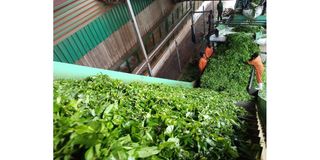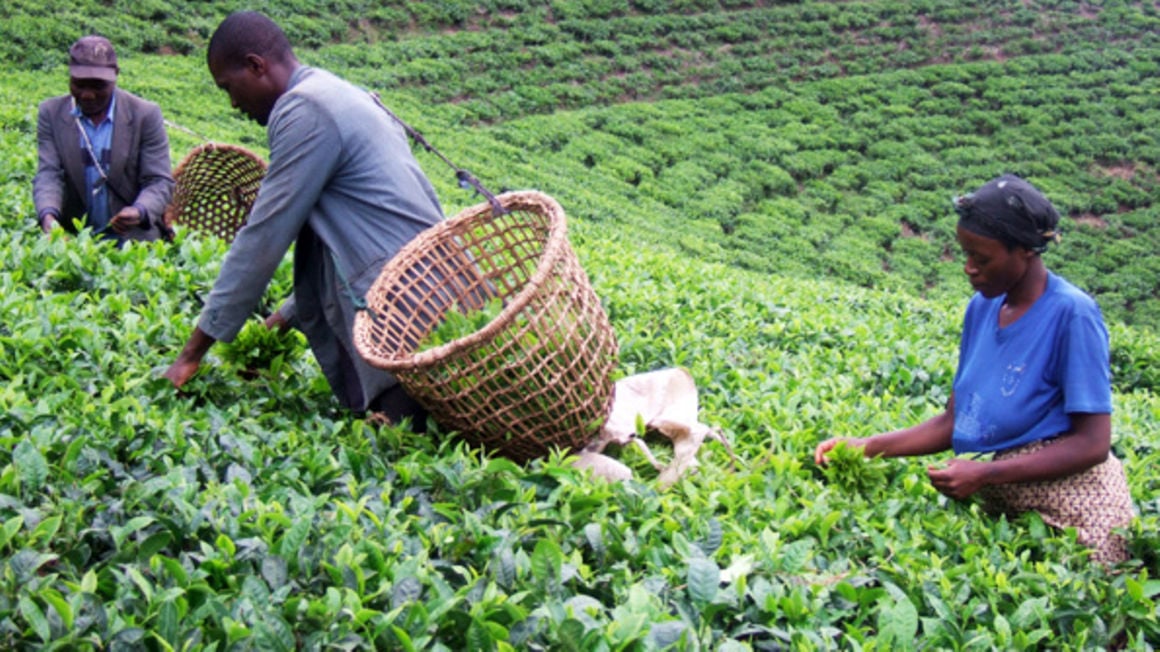Tooro tea farmers appeal to Museveni for rescue

What you need to know:
- The tea farmers are now asking the government to intervene and revive the tea sector.
Tea farmers in Tooro Sub-region have asked the government to intervene and rescue them from the ever-falling tea leaves prices.
Tea farming, once the backbone of the local economy in Tooro Sub-region, has now become a symbol of frustration and disappointment for farmers who feel betrayed by the fluctuating prices of green tea leaves.
Many farmers lament that their tea gardens have been left to offer beauty only to tourists, providing green scenery for those flocking to Fort Portal City in search of stunning landscapes and serene surroundings.
A smallholder tea farmer can now only expect a net profit of between Shs130 and Shs150 per kilogramme of green tea leaves, away from Shs500 they used to earn per kilogramme in the 1990s.
As a result, many farmers have reluctantly turned away from their once-thriving tea gardens, with reports indicating that some have begun uprooting their gardens to plant coffee and food crops.
“Nowadays, because our tea gardens were abandoned, we often see people parking their cars to take pictures, especially those of us with gardens next to the road from Fort Portal to Kyenjojo or Kabarole to Kamwenge District. The green tea leaves provide an attractive background but we are not earning from that view. Did we plant tea for a tourist attraction?” Mr James Kasoro, a tea farmer in Kiko, Kabarole District, said on Saturday.
He added that for a year now, some tea gardens have become overgrown because they no longer hire tea pluckers due to low tea prices.
He said pluckers demand Shs100 per kilogramme harvested, leaving farmers with just Shs50 at most.
Mr George William Nabaasa, a tea farmer who has been in the trade for more than 15 years in Kyenjojo District, said with persistent low tea prices, he uprooted his entire 2.5 acres of tea and replaced it with maize to ensure food security for his family.
“It’s unimaginable that a kilogramme of green tea leaves fetches only Shs150 at the farm. With such low prices, how can a farmer expect to support his family? Without government intervention, all tea estates will remain neglected and overgrown,” he said.
The farmers are now asking the government to intervene and revive the tea sector. During the Labour Day celebrations in Fort Portal City last Friday, farmers expressed their disappointed over the low prices to President Museveni.
“Your Excellency, we urgently need your intervention, especially for the people of this area to ensure that this issue is promptly addressed,” Mr Onesmus Twinamasiko, the chairperson of the Uganda Tea Outgrowers Association, said.
Tooro sub-region hosts 13 tea factories, contributing about 40 percent of Uganda’s tea production.
Mr Twinamasiko told the President that middlemen announced a reduction in tea prices from Shs150 to Shs130 per kilogramme of green tea leaves, which price drop is expected to intensify the already high rate of tea garden abandonment.
He added that there is a need for government regulation to help both farmers and factory owners to address the price issue.
He suggested that for the tea sector to be revitalised, President Museveni should direct the Uganda National Bureau of Standards (UNBS) to regulate green tea leaves as raw material at the factory level, hoping that this can necessitate farmers to harvest quality tea leaves, thereby improving the overall standard of Ugandan tea.
“Even if the government provides fertiliser at no cost, without regulating the quality of green tea leaves entering the factory, it will be ineffective. We will continue to earn less than a dollar at the auctioning market, a price that can’t sustain tea factories.
Some are misguiding the President that tea farmers need authority; what we truly need is a policy that can be enforced to regulate the sector,” he said, adding: “The government pledged a 50 percent subsidy on fertiliser, as a 50kg bag now costs about 150,000. Farmers were supposed to receive fertiliser by March to apply it but the time for application has elapsed and we remain worried.”
He further said in the recently passed government supplementary budget, there was no allocation for fertiliser and that even in the upcoming financial year budget, there’s no provision for it.
Representing the leaders of the Tooro Sub-region, the Minister for Tourism, Col (rtd) Tom Butiime, told President Museveni that currently tea farmers are suffering due to the persistently low prices.
He appealed to the President, urging the Cabinet to swiftly implement its resolution to address the issue and alleviate the plight of tea farmers.
“Here, we cultivate tea, coffee, and sugarcane. We now have a sugar factory too. I implore the government where I am to expedite the implementation of the decisions made by the Cabinet regarding tea. This includes a 50 percent fertiliser subsidy, financial assistance for pruning, and the establishment of tea standards,” he said.
He said the dire situation faced by workers in tea estates and factories has forced many to return home without adequate means to sustain themselves.
President’s response
President Museveni said tea is not a high-value crop. He added that he had researched tea growing and that its global demand is not big compared to others such as coffee.
“On our side, there were some mistakes. We were not using fertilisers and had poor harvesting methods. This is what we are going to address in the Cabinet. In my four-acre model and seven activities, I have never talked about tea growing. And you are saying that tea has got problems, I know them and I studied them. That is why I never included tea in my documents of recommendation. I recommended seven enterprises for the poor people; coffee, fruits, dairy, and food crops for the home, poultry for eggs, piggery, and fish farming. This is what I recommended in writing,” he said.




